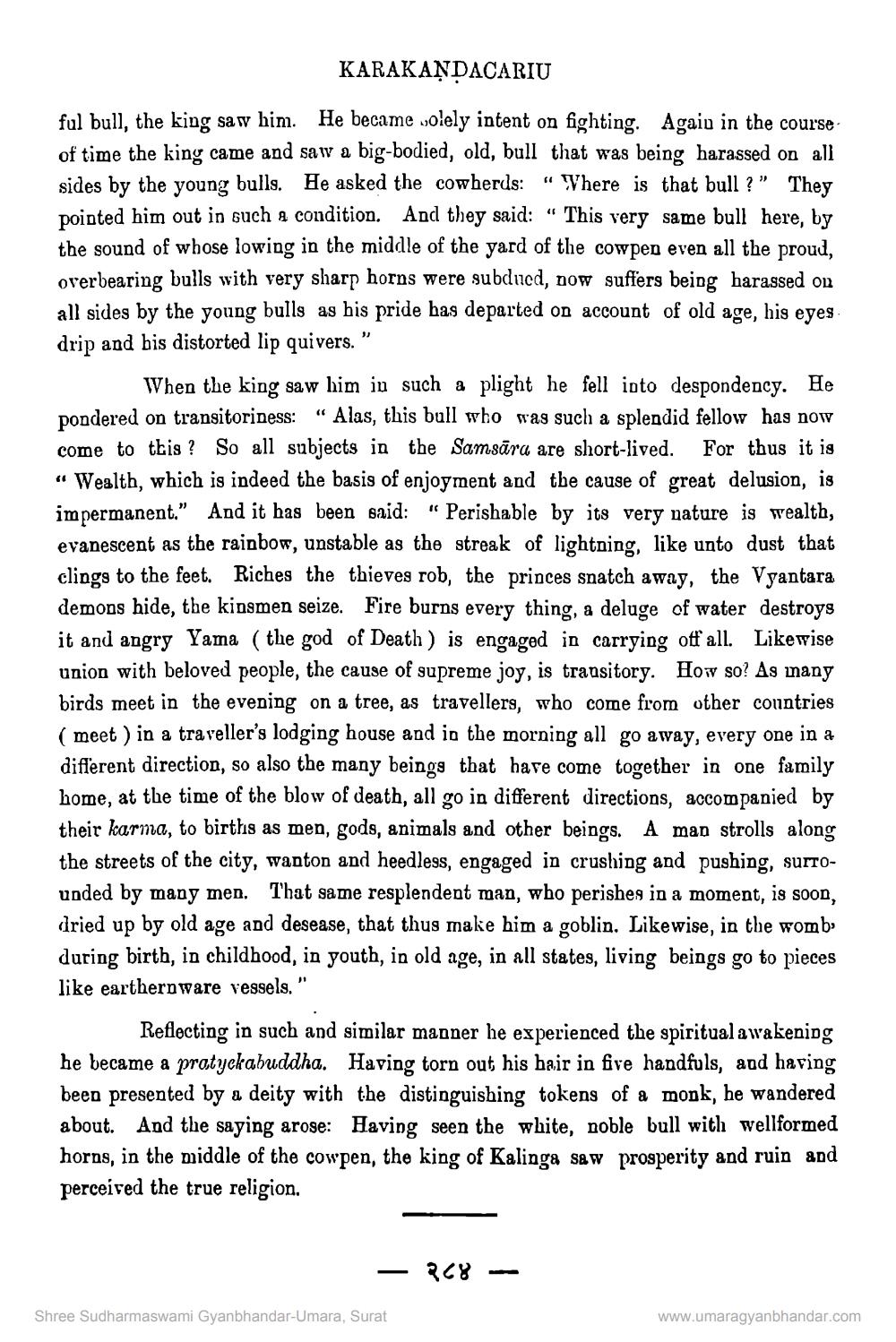________________
KARAKAŅDACARIU
ful bull, the king saw him. He became „olely intent on fighting. Agaiu in the courseof time the king came and saw a big-bodied, old, bull that was being harassed on all sides by the young bulls. He asked the cowherds: “ Vhere is that bull ?” They pointed him out in such a condition. And they said: “ This very same bull here, by the sound of whose lowing in the middle of the yard of the cowpen even all the proud, overbearing bulls with very sharp horns were subdued, now suffers being harassed ou all sides by the young bulls as his pride bas departed on account of old age, his eyes. drip and bis distorted lip quivers.”
When the king saw him in such a plight he fell into despondency. He pondered on transitoriness: “ Alas, this bull who was such a splendid fellow has now come to this ? So all subjects in the Samsāra are short-lived. For thus it is “ Wealth, which is indeed the basis of enjoyment and the cause of great delusion, is impermanent." And it has been said: "Perishable by its very nature is wealth, evanescent as the rainbow, unstable as the streak of lightning, like unto dust that clings to the feet. Riches the thieves rob, the princes snatch away, the Vyantara demons hide, the kinsmen seize. Fire burns every thing, a deluge of water destroys it and angry Yama (the god of Death) is engaged in carrying off all. Likewise union with beloved people, the cause of supreme joy, is transitory. How so? As many birds meet in the evening on a tree, as travellers, who come from other countries ( meet ) in a traveller's lodging house and in the morning all go away, every one in a different direction, so also the many beings that have come together in one family home, at the time of the blow of death, all go in different directions, accompanied by their karma, to births as men, gods, animals and other beings. A man strolls along the streets of the city, wanton and heedless, engaged in crushing and pushing, surtounded by many men. That same resplendent man, who perishes in a moment, is soon, dried up by old age and desease, that thus make him a goblin. Likewise, in the womb, during birth, in childhood, in youth, in old age, in all states, living beings go to pieces like earthernware vessels."
Reflecting in such and similar manner he experienced the spiritual awakening he became a protyckabuddha. Having torn out his hair in five handfuls, and having been presented by a deity with the distinguishing tokens of a monk, he wandered about. And the saying arose: Having seen the white, noble bull with wellformed horns, in the middle of the cowpen, the king of Kalinga saw prosperity and ruin and perceived the true religion.
- 868 -
Shree Sudharmaswami Gyanbhandar-Umara, Surat
www.umaragyanbhandar.com




